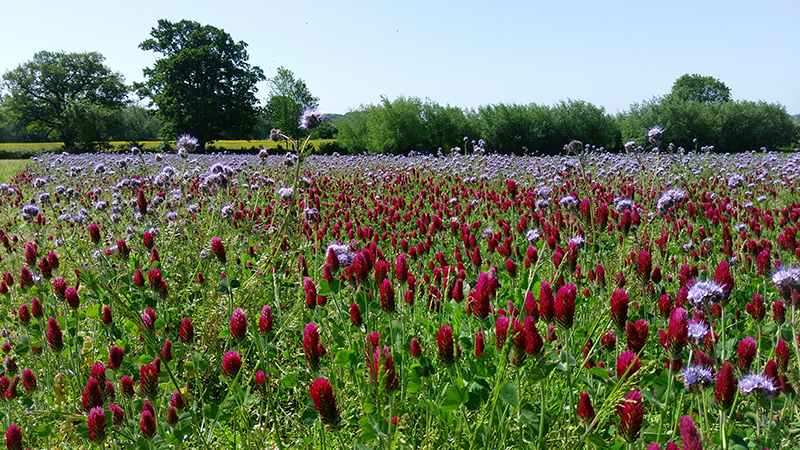
As carbon farming is a current priority on the EU agenda when it comes to climate change mitigation in agriculture, IFOAM Organics Europe urges in their new position paper the need for a holistic and multi-dimensional approach to carbon farming focusing not only on the amount of carbon stored in soils but also on biodiversity protection and the systemic transition of farming systems towards agroecology.
Jan Plagge, IFOAM Organics Europe’s President, said: “Practices that are common in organic farming are already contributing to higher soil carbon stocks on organic farms while providing benefits for soil health, water quality and biodiversity protection. Organic farming should therefore be recognized as a carbon farming practice. It is important to make sure that the efforts of first movers, like organic farmers, are not penalised but recognized as well, so that it is not those who have failed to take action in the past who will be mostly rewarded by a carbon farming scheme.”
Eric Gall, IFOAM Organics Europe’s Policy Manager, added that “the adoption of beneficial management practices for carbon sequestration and biodiversity protection in the agricultural sector should be encouraged and farmers should be remunerated for their efforts. Absolute emissions reductions are needed in all sectors and the recent IPCC report made it clear that the land sector cannot compensate for delayed emissions reductions in other sectors. Organic farmers therefore doubt that carbon markets are the right policy tool to provide fair and reliable funding to farmers to enhance carbon sequestration in their soils.”
Ahead of the upcoming vote of the European Parliament’s ENVI Committee on their report on the revision of the LULUCF Regulation, another important piece of legislation when it comes to carbon removals, the organic movement calls on the MEPs to ensure that enhancing carbon sinks does not undermine biodiversity protection objectives and that strong safeguards are ensured. Biodiversity is not simply a “co-benefit” of carbon sequestration in soils, but well-functioning ecosystems are a necessary condition for agriculture ecosystems resilience, climate mitigation and adaptation. Furthermore, emissions reductions have to be achieved in all sectors, therefore, agricultural emissions should not be hidden by forestry removals which could be the case in the AFOLU pillar as proposed by the European Commission.
Organic farming has multiple benefits for the climate and biodiversity, including increased carbon sequestration in soils, a lower energy input, 30% more biodiversity on the farm and an increased resilience of the farming system. These are highlighted in a new document published by IFOAM Organics Europe.
